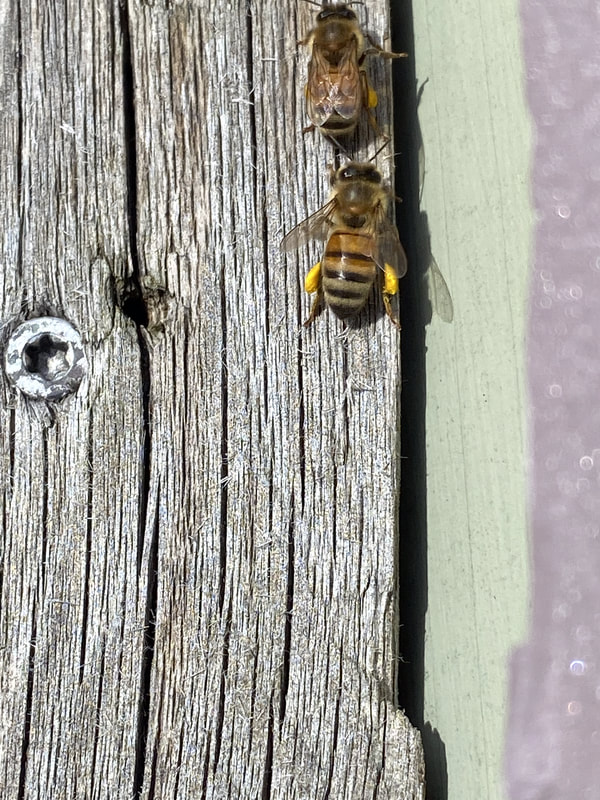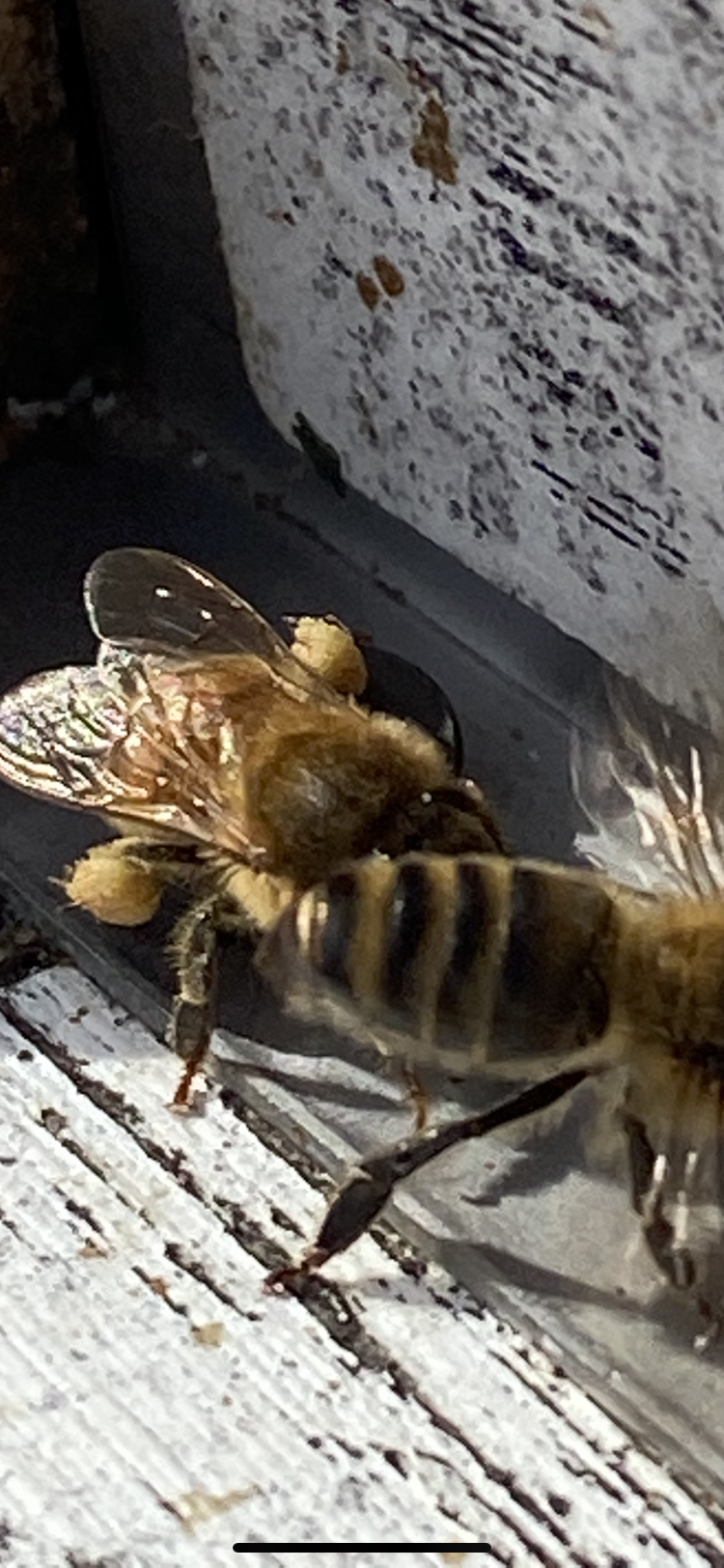First Pollen of 2022 reported in Seacoast, NHOn February 23, 2022, the temperatures in the Seacoast area of New Hampshire reached well above 60 degrees and our bees, in various apiaries, were flying and bringing in some heavy pollen loads. The Little Harbor apiary in Portsmouth showed two different types of pollen coming in that couldn't be identified (we let the bees keep this important resource at this time of season) but looked to be either willow, maple, and/or crocus. The Little Boar's Head apiary in North Hampton, had a great amount of pollen coming in and this pollen looked to be Witch Hazel that is blossoming in the area around the apiary. Some people will say this isn't a normal occurrence but it is something we have seen in past years and it is normal for Witch Hazel to bloom in the late wintertime period. Why is Pollen Needed?Pollen is critical to the beehive because it provides a critical protein resource for the colony. Pollen was last collected by the hive in the Fall and unlike honey, it has a shelf life. While some of the pollen collected late in the Fall can still be viable there isn't as much left in many of the hives or it may have spoiled. So a fresh source is a welcome site for the hive and beekeeper alike. We typically provide pollen patties at this time of the season to help kick start the hives protein supply. What happens from Here?As the season continues and temperatures return to normal levels the bees will hunker down again and use their resources to continue with brood development. As things get warmer, more and more plants will start to produce pollen and soon some will have some early nectar flows. Beekeepers and pollinators are eagerly awaiting these days.
0 Comments
|
Details
SEABEE HONEY BLOGAuthorA beekeeper in New Hampshire [email protected] Archives
December 2023
Categories
All
|



 RSS Feed
RSS Feed